#Greater Gatsby F Scott Fitzgerald
Explore tagged Tumblr posts
Text
Sunday Times
Spoilers under the cut for episode 3 of Greater Gatsby!
So Barnaby's a delight and a half! I sincerely hope he really does just turn out to be a nice guy who's simply too kind and boring for Vivian. And while I definitely think he knows more about Vivian's affairs than his talk with Fig and Ford would suggest (he's well-connected with journalists and reporters, and also not an idiot), he could just be a kind and accommodating guy trying to protect his wife and marriage. Vivian is not kind or accommodating--I could see her initially gravitating to Barnaby because he balanced out all of her edges and then quickly becoming bored. Is there a part of her that hopes he killed Fitzy, because at least that means he has claws after all? Or, on a much darker note, was she speaking from experience when she mentioned Barnaby throttling someone? That sort violently abusive marriage seems a little too dark for Shipwrecked, so I really don't think that's the case, but I still felt my blood run cold for a second when she delivered that line. Vivian's disgust for Barnaby could very well be a red flag to take completely seriously. Regardless, this is my first time experiencing Tommy Hobson and he's a treat! Hope to get him back soon!
Meanwhile, "The Benefits of Being My Man," my beloved! Vivian performing this song right after her husband talks about how much he loves her and how little she cares for him, and whilst Ford and Fig investigate him for the murder of her lover, is just perfect timing and pure comedy. The many benefits of being her man, indeed. Just as unfortunate as the song suggests.
But there's definitely something fishy about Fitzy's gossip-columnist girlfriend meeting with an ambitious young screenwriter hungry for opportunity, especially when there's a missing gossip-filled screenplay somewhere in all of this mess. We haven't really talked about the intersection between F. Scott's plan to blow open so many people's secrets and his live-in girlfriend's career. Were Fitzy and Sheilah in on Greater Gatsby together? Is she trying to re-create/finish the work without him? Or are fouler plans afoot?
And what does she have against Ford?? Or is she just worried about what he may find?
Also, what's up with all this talk about Bixby's financial struggles? Is that gonna be an important clue to unraveling this whole tangle of intrigues?
#tw: domestic violence#tw: domestic abuse#fig and ford#the case of the greater gatsby#shipwrecked comedy#the case of the greater gatsby episode 3: Sunday Times#Ford Phillips#Fig Wineshine#Barnaby Nightingale#vivian nightingale#Greater Gatsby Sheilah Graham#Greater Gatsby F Scott Fitzgerald
16 notes
·
View notes
Text
In today's episode, secrets are revealed at Mel Hammermeister's Christmas party.
FEATURING Julia Cho as Sheilah Graham Daniel Vincent Gordh as F. Scott Fitzgerald and more
On Apple Podcasts and Spotify! 🎧
#shipwrecked comedy#fig and ford#the case of the greater gatsby#f scott fitzgerald#daniel vincent gordh#julia cho#sheilah graham#historical fiction#film noir#audio drama#audio narrative#podcast#scripted podcast
21 notes
·
View notes
Text
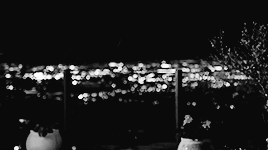





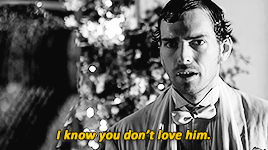


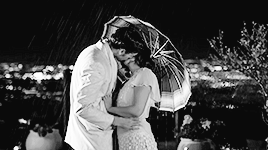
The Great Gatsby by F. Scott Fitzgerald
Kissing in the Rain, Episode 10 “Daisy & Jay” [x]
#kissing in the rain#shipwrecked comedy#perioddramaedit#userthing#the great gatsby#f. scott fitzgerald#audrey and henry#sinead persaud#sairus graham#my edits#kitredit#with her nose stuck in a book#black and white#classic literature#1920s#rain#true love's kiss#i keep having to make sure i haven't typed 'greater gatsby' haha#p.s. everyone go listen to 'the case of the greater gatsby' right now!#p.p.s. au where fig continues her hollywood career and stars in an adaptation of 'the great gatsby'?? :D
74 notes
·
View notes
Text
have my offering of real silly post ep 11 + 12 greater gatsby memes
this was me basically
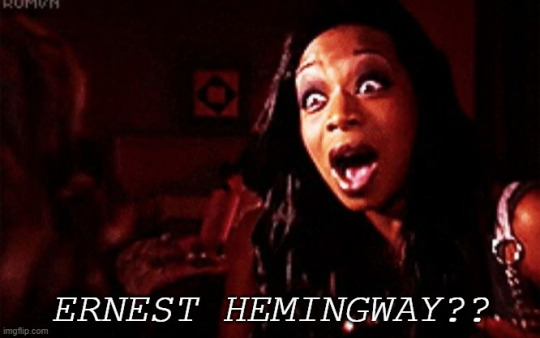
RETURN OF THE KING

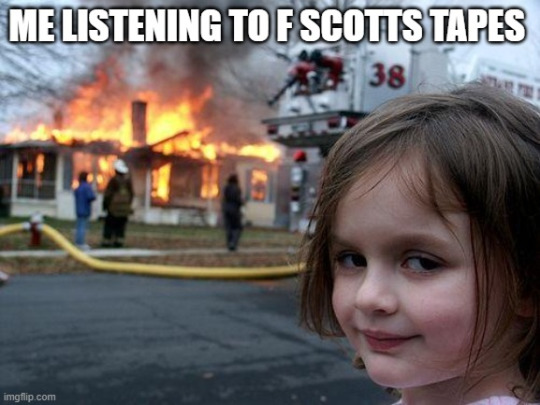
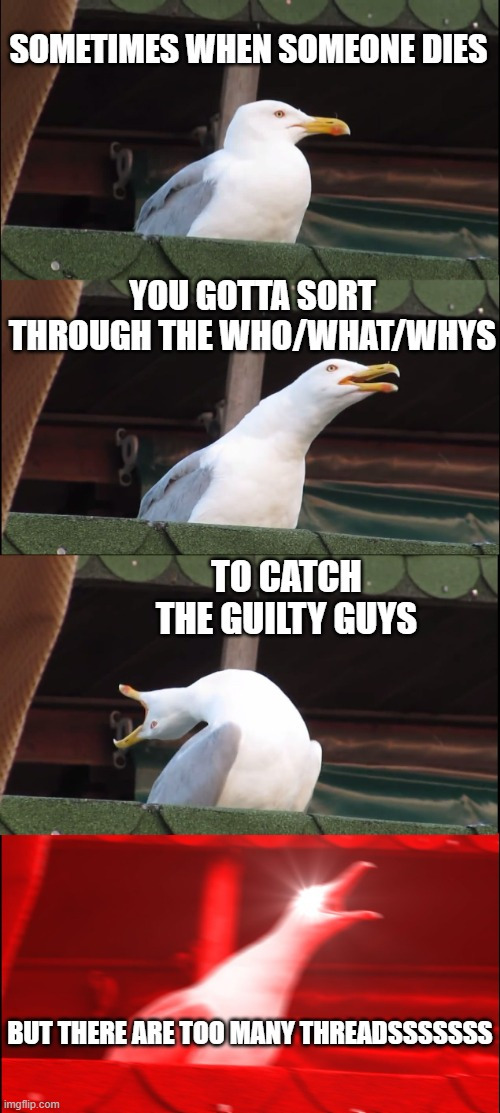
anyway mkw can have my heart
#THE RANGE OF EVERYONEEEEEEE#the greater gatsby#DO I CARE ABOUT THE FORMATING NO I DONT HOW DARE YOU ASK OF THAT GET OUT OF MY HOUSE (sheila gram voice)#shipwrecked comedy#ahoys thoughts#fig and ford#vivian nightingale#ernest hemingway#the hinge highwaymen#f scott fitzgerald
66 notes
·
View notes
Text
Becoming an Intelligent Woman
My Dears,
There is no greater goal than being a fine woman who is intelligent, kind, and elegant. As much as we all want to be described with these adjectives, it takes a great amount of discipline to get there. It is very doable only if you are ready to put in the work.
Here are steps you can add to your routine in the next 4 weeks that will make you 1% more intelligent than you were before. This is a process that should become a habit not a goal. It is long term, however, I want you to devote just 4 weeks into doing these steps first and recognize the changes that follow.
Watch documentaries: This is the easiest step, we all have access to Youtube. Youtube has a great number of content on art, history, technology, food, science etc that will increase your knowledge and pique your curiosity. I really did not know much about world history especially from the perspective of World war 1 & 2, the roaring 20s, Age of Enlightenment, Jazz era, monarchies etc but with several channels dedicated to breaking down history into easily digestible forms. I have in the last 4 weeks immersed myself into these documentaries. Here are a few I watched:
The fall of monarchies
The Entire History of United Kingdom
The Eight Ages of Greece
World War 1
World War 2
The Roaring '20s
The Cuisine of the Enlightenment
2. Read Classics: I recommend starting with short classics so that you do not get easily discouraged. Try to make reading easy and interesting especially if you struggle with finishing a book. Why classics? You see, if you never went to an exclusive private school in Europe or America with well crafted syllabus that emphasized philosophy, history, art, and literary classics, you might want to know what is felt like and for me this was a strong reason. Asides that, there is so much wisdom and knowledge available in these books. In these books, you gain insights to the authors mind, the historical context of the era, the ingenuity of the author, the hidden messages, and the cultural impact of these books. Most importantly, you develop your personal philosophy from the stories and lessons you have accumulated from the lives of the characters in the books you read. Here are classics to get you started:
Animal Farm by George Orwell
Pride and Prejudice by Jane Austen
Jane Eyre by Charlotte Brontë
The Great Gatsby by F Scott Fitzgerald
Candide by Voltaire
Paradise lost by John Milton
3. Study the lives of people who inspire you: I dedicate one month to each person that fascinates me. I read their biography (date of birth, background, death, influences, work, style, education, personal life) For this month, I decided to study Frank Lloyd Wright because I was fascinated by the Guggenheim Museum in New York. I began to read about his influence in American Architecture (Organic architecture, Prairie School, Usonian style), his tumultuous personal life, his difficult relationship with his mentor (Louis Sullivan), his most iconic works etc. By the end of the year I would have learned the ins and outs of people I am inspired by through books and documentaries. Here are other people I plan to learn more about:
Winston Churchill
Jacqueline Kennedy Onassis
Ada Lovelace
Benjamin Franklin
Helen Keller
John Nash
Isabella Stewart Gardner
Caroline Herrera
Ernest Hemingway
Catherine the Great
Ann Lowe
My dears, I hope you enjoyed this read. I cannot wait to write more on my journey to becoming a fine woman. I urge you to do this for four weeks and see what changes you notice. Make sure to write as well, it is important to document your progress.
Cheers to a very prosperous 2024!
#fine woman#growth#self love#self development#mindfulness#education#classy#beauty#self help#self care#interiors#self discipline#self worth#emotional intelligence#intellectual#intelligent#interesting#booklover#bookworm#booklr#educateyourself#get motivated#self improvement
2K notes
·
View notes
Note
youre a gatsby enjoyer. tell me do you think there are any good thematic links to be made between gatsby and american psycho?
I think there is a link to be made between American Psycho and The Great Gatsby in terms of the hollow, deeply unsatisfied upper class and a decline in values in service of capitalism and consumerism.
In Gatsby, author F. Scott Fitzgerald depicts the 1920s as a period of declining moral values in service of greed, wealth and status. Brett Easton Ellis' depiction of American society is similar. The 1980s to Ellis are Fitzgerald's 1920s on steroids - literally. The upper classes in American Psycho are constantly on cocaine and other drugs, drinking, smoking, having affairs, objectifying and, in the case of the novel's protagonist and narrator Patrick Bateman, brutally murdering women.
However, Gatsby's themes of moral decline are more focused on a dying American Dream, whereas American Psycho's similar themes are a satirical critique of capitalist consumerism and 80s "yuppie" culture.
The upper classes in both these texts are similarly hollow. Nick Gatsby is a deeply unhappy yet extraordinary wealthy man driven soley by his pursuit of a woman who can never truly live up to the impossible standards of Gatsby's imagination. Gatsby's extravagant parties serve both as a way for Gatsby to feebly attempt to reunite with Daisy, and as a way to cope with his deep unhappiness.
Patrick Bateman is a shell of a man. Deeply unhappy and mentally unstable, Bateman spends his days as a wealthy investment banker, filling his empty hours with pornography and sex workers, as well as brutal, violent murder - or at least, the belief he commits brutal, violent murders, as the extent of his crimes in reality is unclear. Despite his efforts, nothing ever fills the void in his life, always in pursuit of something more or greater to conquer or purchase. His values and wants are defined by consumerism and the trends of the day.
Overall, both texts have something different to say about America, capitalism and consumerism, but share similar themes and topics.
18 notes
·
View notes
Text
New Fiction Podcasts - 29th July
The Case of the Greater Gatsby New Audio Drama! Set in 1940s Hollywood, this comedic film noir mystery follows hardboiled private eye Ford Phillips and his feisty, fast-talking partner Fig Wineshine as they delve into the seedy underbelly of Tinsel Town while trying to solve the murder of famed novelist-turned-screenwriter F. Scott Fitzgerald. Featuring a coterie of wacky characters - including real actors and public figures from the time - and original musical numbers, The Case of The Greater Gatsby turns historical fiction and genre tropes into a twisty, hilarious romp. https://audioboom.com/channels/5111599-the-case-of-the-greater-gatsby RSS:https://audioboom.com/channels/5111599.rss

Bear Lake New Audio Book! Bear Lake tells the story of a 17-year-old Utah girl in 1989, a young Mormon pioneer woman in 1859 - and the ancient, brooding lake monster who unites them. As each navigates the pitfalls of first love, mortality, and identity, their stories begin to connect in ways both mythic and mundane. How do you deal with tragedy when just getting through a day of high school is a struggle? How do you love fully in a world defined by death? And what do you believe in, when you can’t believe in God? https://www.bearlakepodcast.com RSS:https://feeds.buzzsprout.com/1846787.rss

The Patient Files New Audio Drama! The Patient Files is a horror-anthology series. It follows Dr. Charles Talbot as he takes over an out-patient therapy program from an old colleague. Along the way, Dr. Talbot discovers that not all nightmares are the result of mental illness, and he soon finds himself out of his depth. A large part of The Patient Files are “Patient Transcripts” and “Patient Recordings” that detail patient encounters with the supernatural and paranormal. All of this takes place while a mystery unfolds with Dr. Talbot and his personal experiences with the same unknown forces. https://shows.acast.com/the-patient-files RSS:https://feeds.acast.com/public/shows/the-patient-files

Skyfire New Audio RPG! "Skyfire" is an epic tale set in a world where the skies hold both danger and untamed power. Led by Captain Serenity, a courageous and determined leader, a crew of sky pirates defies oppressive forces to fight for freedom and challenge the status quo. As they navigate lightning-laden storms, engage in breathtaking aerial battles, and uncover treacherous secrets, their audacious acts of rebellion set in motion a chain of events that will reshape the destiny of the skies forever. Get ready to embark on a thrilling adventure filled with danger, camaraderie, and the relentless pursuit of liberation in "Skyfire." https://skyfire.transistor.fm/ RSS:https://feeds.transistor.fm/skyfire

SENSO New Audio Drama! Futuro. Emisfero settentrionale. La perdita dei sensi colpisce indiscriminatamente adulti e anziani, donne e uomini lasciando indenni i bambini. Il contagio avviene nell’arco di pochi mesi. Alcune persone perdono la vista, altri l’udito, l’uso della parola, altri ancora la memoria. Nei boschi di conifere della Val di Sole, i gemelli Bruno e Benji fanno una scoperta sensazionale. Una scoperta che li porterà a confrontarsi con un mondo in conflitto con sé stesso e con gli equilibri naturali. Un eco-thriller in 9 episodi che è una corsa contro il tempo e contro il pensiero ad una sola dimensione, per ritrovare il Senso del vivere all’interno di una comunità. https://www.spreaker.com/show/senso-podcast RSS:https://www.spreaker.com/show/5843687/episodes/feed
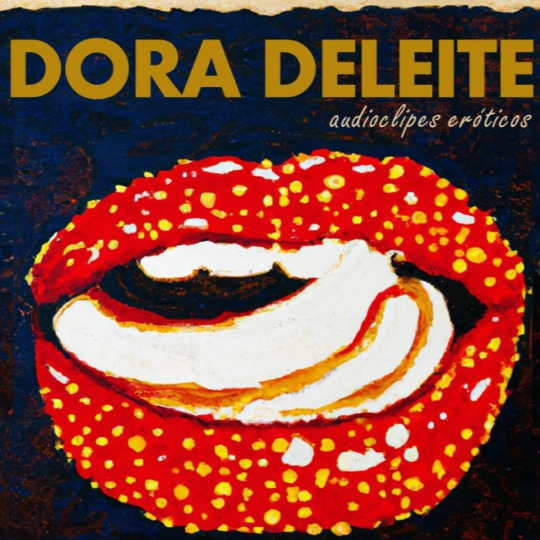
Dora Deleite New Audio Book! Ficção erótica para amantes de safadeza e afeto. Novos episódios sempre em noite de lua cheia https://podcasters.spotify.com/pod/show/dora-deleite/ RSS:https://anchor.fm/s/e20bc59c/podcast/rss

Personas Ungrata New Audio RPG! A biweekly Dungeons Dragons and Comedy Podcast about the power of stories and the importance of finding your place in the world. https://rss.com/podcasts/personasungrata RSS:https://media.rss.com/personasungrata/feed.xml

Black Betty Blog New Audio Book! Science fiction and horror short stories by Elizabeth "Black Betty" de Moya. Read by the author. https://podcasters.spotify.com/pod/show/elizabeth-de-moya RSS:https://anchor.fm/s/e63955d0/podcast/rss
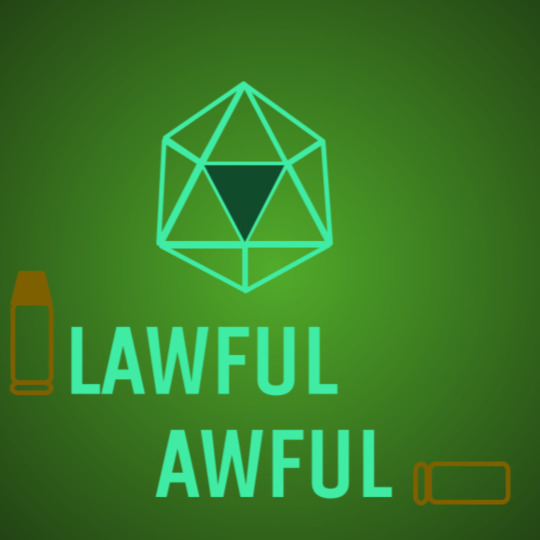
Lawful Awful New Audio RPG! An RPG playthrough podcast centered on Horror/suspense RPGs, particularly Delta Green https://podcasters.spotify.com/pod/show/lawful-awful5 RSS:https://anchor.fm/s/e3bb6e4c/podcast/rss
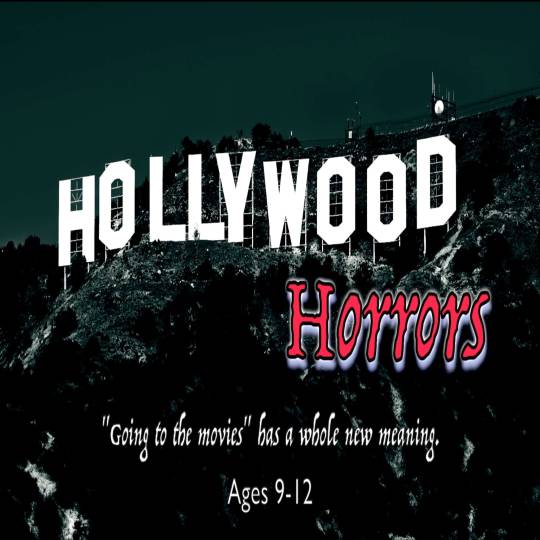
Hollywood Horrors New Audio Book! This audio-drama series is for kids who love frightening tales and hearing about their parents' favorite movies. Each season will feature a new kid, or kids, who find themselves transported into some of the greatest movies ever made by clicking on an ominous app. It's up to them to come out of each film alive. https://share.transistor.fm/s/29fc60c9 RSS:https://feeds.transistor.fm/hollywood-horrors

Forever Twenty New Audio RPG! Forever 20 is an actual-play Dungeons and Dragons podcast. Join our Disaster Master Kammin Easley, and our players Jake Easley, Kyle Hudick, and Coty Dennis as they navigate through their original adventures based on the classic tabletop role playing game. https://shows.acast.com/forever-twenty RSS:https://feeds.acast.com/public/shows/forever-twenty

Tales of the Emerald Legacy New Audio Book! As the mainland suffer calamities, samurai must leave their homes behind. Will they build a new civilization on Sanctuary? Or will corruption - mundane and spiritual - lead them to failure? Emerald Legacy is the fan continuation of the “Legend of the Five Rings” Living Card Game. This podcast contains audio versions of the fictions that are published as part of this fan continuation. https://podcasters.spotify.com/pod/show/tariq-ali906 RSS:https://anchor.fm/s/e65c62dc/podcast/rss
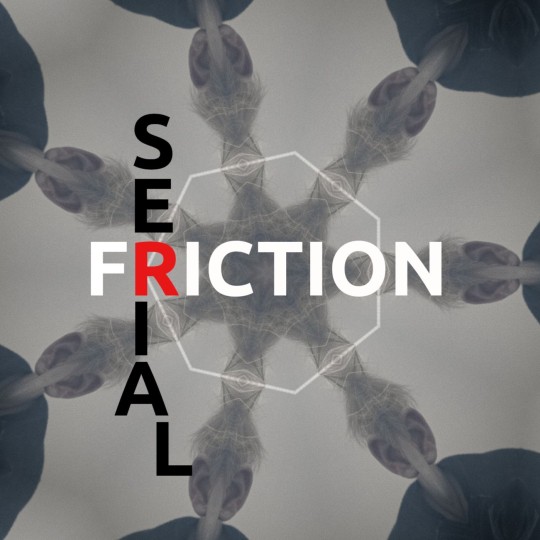
Serial Frictions Podcast New Audio Book! The Serial Frictions Podcast is a horror and mystery anthology podcast that delves into both the surreal and the too real. https://serialfrictions.podbean.com RSS:https://feed.podbean.com/serialfrictions/feed.xml

The ESCAPE Pod New Audio Drama! Welcome to "The Escape Pod," a captivating storytelling podcast hosted by Justin, your guide through a realm of intriguing tales. Step into a world where imagination knows no bounds as Justin shares a collection of his own short stories, crafted to captivate and delight. Each episode of "The Escape Pod" promises an immersive storytelling experience, where you'll encounter characters as diverse as the stories they inhabit. From thrilling mysteries to heartwarming tales of love and resilience, every narrative unfolds like a hidden treasure waiting to be discovered. https://podcasters.spotify.com/pod/show/escapepodcast RSS:https://anchor.fm/s/e6417f44/podcast/rss

Bloom&Blight New Audio RPG! A queer and trans led Girl by Moonlight actual play podcast following the titular magical girl team Bloom. After securing victory against their nemesis at a devastating cost, the strained team finds themselves drawn back together as whispers of evil begin again. https://bloomandblight.captivate.fm RSS:https://feeds.captivate.fm/bloomandblight/
2 notes
·
View notes
Text
The Classics- Important or Overhyped?
TW: p3dophilia
Many pieces of literature have been termed as, “classics” and are said to possess a high quality which makes them a ‘must-read’. A timeless quality, good writing, renowned authors, universal themes and much more determines what can be classified as a “classic”. Some examples of classics include, “Pride and Prejudice” by Jane Austen, “Wuthering Heights” by Emily Brontë, Shakespeare, “The Great Gatsby” by F. Scott Fitzgerald, “Little Women” by Louisa May Allcot, “War and Peace” by Leo Tolstoy, and many more. However, are the classics worth the read, or are they overrated? And does, not having read the classics make you any less of a reader from those who have? These are some questions posed in front of readers, in the field of literature.
I am personally very selective when it comes to various genres, but my prime focus rests on fiction, and that genre in itself is so wide that my selectivity in picking which books to read does not necessarily limit my options. Only recently, I started getting into the classics. While, I haven’t read all the classics and the ones that I have so far, I read those in my own time and will, but to be very honest, I did feel a little pressure to read and LIKE the classics, only because there is a notion out there, that, that is how it should be. “You must know Shakespeare”, “How can you not cry over the Romeo and Juliet Tragedy”, “Everyone loves Jane Austen”, “The Great Gatsby is one of the most important pieces of literature.” I mean, how much can you boast about reading “The Song of Achillies” in front of a crowd that reads Homer?
While there is no denying that The Song of Achillies is a great book, but would most people consider it to be ‘greater’ than the “Iliad”? Despite not having read Homer (though, I plan to afterwards), but having read The Song of Achillies, I still won’t say that it’s better than the original classic. Maybe my opinion would change after reading Homer, maybe it won’t, but the underlying fact remains that there is some sort of societal pressure that makes you place the classics at some place higher in literature hierarchy.
Another reason why the classics are ‘the classics’, is because they are said to reflect timeless societal themes, but considering that societal norms are ever-evolving, how long will this characteristic last? I feel like, overtime, classics lose this timeless value, but people continue to read them to reinvoke a sense of nostalgia, or they focus on its other aspects. For instance, I would not revisit or recommend “Pride and Prejudice” because it talks about social class and familial relations, but I would for the complexity of Mr. Darcy’s character and his romantic plot with Elizabeth Bennet. But then again, my first argument for recommending “Little Women” by Louisa May Alcott, would be feminism and how the book was ahead of its time primarily due to this social factor.
While such classics do set a good precedent for contemporary times, while reflecting breaking traditional roles back in the day, some don’t. In fact, some may influence or inculcate an orthodox perspective in the modern day and life. “The Great Gatsby”, for example, may be regarded as one of the greatest pieces in American Literature, and while the plot can be really intense and grasping but was life in America, in the 1920’s really that glamorous, as shown in the book? Of course it was, but only if you were rich and white, just like the main characters in the books were. At the same time, I would not lie by saying that I don’t enjoy participating in the “Was it a dream or a lie?” discussion that comes from this book.
As for poetry, things get a little more complex, as modern poetry isn’t as celebrated as classic poetry. Naturally, when someone asks me to think of a poet, the first names that come to my mind are, “Sylvia Plath”, “Edgar Allan Poe”, “Walt Whitman”, rather than “Rupi Kaur”. While this doesn’t make Rupi Kaur any less of a poet, but it speaks more about the value of poetry in the modern world.
Moreover, some classics and their authors are deemed to be problematic. For instance, “Lolita” by Vladimir Nabokov, showcases a grown man’s perverted thoughts for a 12-year-old girl. Owing to revolving around the sensitive topic of paedophilia, the book is deemed to be problematic, yet at the same time it is considered to be a very well written piece of literature. This sparks another debate of, “the Art vs the Artist”, which we shall talk about in upcoming blogs.
Another argument which comes up in this debate over the classics is that they are difficult to read since many of them are written in Shakespearean English, or Latin, or other classical languages which is not understood by many. However, multiple translated versions of these classics also exist for those who want to read them but can’t owing to this language barrier. At the same time, many also argue that such classics are important in terms of preserving the classical languages.
So, while literature presents a wide variety of genres to read about, some are considered to be a must-read, primarily owing to the international recognition the work and the authors have received. While my interest in classics is increasing as I read more and more but at the same time, I would never refuse to accept how much I love reading modern day works as well, such as, “Red, White and Royal Blue” by Casey McQuiston, or “The Secret History” by Donna Tart and many more. At the end of the day, your taste in different art forms, such as, music, or literature, is subjective and you shouldn’t shame anyone for theirs, of course, unless what they’re into is actually really bad. XD
#classics#classical literature#literature#books & libraries#books#jane austen#pride and prejudice#mr darcy#elizabeth bennet#emily bronte#wuthering heights#the great gatsby#william shakespeare#romeo and juliet#war and peace#leo tolstoy#the song of achilles#tsoa#homer#the iliad#slyvia plath#walt whitman#edgar allan poe#lolita#vladimir nabokov#rupi kaur#poets#poetry#little women#louisa may alcott
1 note
·
View note
Text
Fashion Icons Through the Ages: Timeless Inspiration for Modern Trends
Fashion is an ever-evolving form of self-expression that transcends time and cultural boundaries. From the elegant styles of the Renaissance to the rebellious spirit of the 20th-century counterculture, fashion has always mirrored the zeitgeist of its era. Throughout history, certain individuals have emerged as trailblazers, leaving an indelible mark on the world of style. These fashion icons, through their unique and innovative approaches, have shaped the way we perceive and embrace fashion today. In this exploration of "Fashion Icons Through the Ages," we will delve into the lives and styles of some of the most influential figures in the world of fashion, drawing inspiration from their timeless contributions to create a bridge between the past and the present.
Ancient Influences:
The roots of fashion can be traced back to ancient civilizations, where clothing served both functional and symbolic purposes. In ancient Egypt, for example, the pharaohs and high-ranking officials adorned themselves with elaborate garments and accessories as a symbol of their status and power. The flowing robes and intricate jewelry of this era continue to inspire designers today, emphasizing the enduring allure of ancient aesthetics.
Greek and Roman civilizations also played a significant role in shaping early fashion. The toga, worn by Roman citizens, and the chiton, a draped garment popular in ancient Greece, have left a lasting impact on modern fashion. The timeless elegance and simplicity of these classical styles often find their way into contemporary designs, showcasing the enduring influence of ancient fashion on the modern runway.
The Renaissance Revival:
The Renaissance marked a period of profound cultural and artistic transformation in Europe, and fashion was no exception. During this time, individuals such as Queen Elizabeth I and Catherine de' Medici set new standards for opulence and sophistication. Elizabethan fashion, characterized by lavish fabrics, intricate embroidery, and voluminous skirts, continues to captivate designers who seek to infuse their creations with a sense of regal grandeur.
The Renaissance also saw the emergence of the corset, a garment that would shape women's silhouettes for centuries to come. Though its use has evolved over time, the corset's influence is unmistakable in contemporary designs that celebrate the female form.
The Roaring Twenties:
The 1920s brought about a seismic shift in fashion, ushering in the era of flappers and the iconic silhouette of the "Roaring Twenties." Women abandoned the restrictive corsets of the past in favor of loose-fitting, drop-waist dresses that allowed for greater freedom of movement. Coco Chanel, a pioneer of modern fashion, played a pivotal role in popularizing the relaxed, androgynous style that defined the decade.
The Jazz Age not only revolutionized women's fashion but also introduced iconic menswear styles, including the enduring appeal of the three-piece suit. The suave and sophisticated looks of the 1920s, epitomized by figures like F. Scott Fitzgerald and his fictional character Jay Gatsby, continue to inspire contemporary fashion, influencing everything from formal wear to street style.
The Golden Age of Hollywood:
The glamour of Hollywood's Golden Age in the 1930s and 1940s left an indelible mark on fashion. Stars like Marilyn Monroe, Audrey Hepburn, and Cary Grant became style icons, and their influence is still felt in the timeless elegance and sophistication associated with the era. From Monroe's iconic white halter dress to Hepburn's little black dress in "Breakfast at Tiffany's," these Hollywood legends set the stage for classic, glamorous fashion that transcends trends.
Postwar Rebellion:
The postwar period witnessed a rebellion against the formality of previous decades, giving rise to youth-driven subcultures and countercultural movements. Figures like James Dean and Marlon Brando popularized a more casual, rebellious style with leather jackets and denim, symbolizing a departure from the sartorial norms of the time. This rebellious spirit laid the foundation for the emergence of the iconic "cool" aesthetic that continues to influence streetwear and casual fashion today.
Swinging Sixties:
The 1960s marked a radical departure from the conservative styles of the previous decade. The youth-driven counterculture rejected established norms, and fashion became a powerful tool of self-expression. Icons like Twiggy and the Beatles embraced psychedelic prints, bold colors, and unconventional silhouettes, embodying the spirit of the Swinging Sixties.
The miniskirt, popularized by designers like Mary Quant, became a symbol of liberation and women's empowerment. The androgynous styles of musicians like David Bowie challenged traditional gender norms, leaving a lasting impact on the evolving landscape of fashion.
Punk Rebellion:
The late 1970s and early 1980s saw the emergence of punk rock, a movement that not only revolutionized music but also had a profound influence on fashion. Punk style, characterized by torn clothing, leather jackets, and bold accessories, became a symbol of rebellion and anti-establishment sentiment.
Fashion icons like Vivienne Westwood and Malcolm McLaren played a key role in shaping the punk aesthetic, and their DIY ethos continues to inspire designers who seek to challenge conventions and push the boundaries of traditional fashion.
Minimalism and Grunge:
As the fashion world entered the 1990s, a shift towards minimalism and grunge aesthetics took center stage. Designers like Calvin Klein embraced clean lines and neutral colors, while the grunge movement, led by musicians like Kurt Cobain, popularized a more casual and disheveled style. The juxtaposition of these two contrasting trends defined the fashion landscape of the era, reflecting a desire for both simplicity and authenticity.
Contemporary Icons:
In the 21st century, the concept of fashion icons has evolved beyond traditional celebrities to include influencers, designers, and even fictional characters. Social media platforms have democratized fashion, allowing individuals to cultivate their unique styles and influence global trends.
In the realm of high fashion, designers like Alexander McQueen, Karl Lagerfeld, and Stella McCartney have left an indelible mark on the industry, pushing boundaries and redefining the possibilities of design. Meanwhile, influencers like Chiara Ferragni and fashion-forward celebrities such as Rihanna have become influential figures in shaping modern trends and challenging conventional notions of style.
Conclusion:
"Fashion Icons Through the Ages: Timeless Inspiration for Modern Trends" showcases the enduring influence of historical figures on the ever-evolving world of fashion. From the opulence of the Renaissance to the rebellion of punk, each era has contributed distinctive elements to the rich tapestry of style. The fusion of past and present in contemporary fashion reflects a continual dialogue between tradition and innovation.
As we draw inspiration from the fashion icons of yesteryears, it becomes evident that true style transcends fleeting trends. The ability to adapt, reinterpret, and blend elements from different eras is what makes fashion an art form that is both dynamic and enduring. In the ongoing journey of self-expression through clothing, we find that the past is not merely a reference point but a boundless source of inspiration, offering a timeless guide for navigating the ever-changing landscape of modern fashion.
Elevating Vadodara's fashion scene one design at a time! Discover why Harshil Design Studio stands out as the city's premier fashion destination.
Top of Form
0 notes
Link
#art#culture#education#environmentalart#exploration#history#inspiration#photography#style#wellness#writing
1 note
·
View note
Text
Misery AND The World Has Turned And Left Me Here
Well, life is insane but I intentionally let my phone die and instead found the time to write up my thoughts on Episodes 12 and 13 of The Case of The Greater Gatsby! I know Episode 14 dropped today and I was gonna do all three at once but--there's sooo much to talk about! The notes I had for just these two episodes alone were...erm...generous in number. So, uh, spoilers under the cut and my apologies for the amount of stuff I'm about to say?
First off, WOW WHAT A PAIR OF EPISODES! New reveals! Even newer questions! Quips and lies and truths! A banger of a cliffhanger! Jon Cozart followed by my man Dylan Saunders in his Shipwrecked debut! THE RETURN OF ERNEST HEMINGWAY (the noise I made when I saw he was in this episode…)!! Well played, Shipwrecked, well-freaking-played.
So let’s start out with a bang. Here’s my Wacky And Unlikely Greater Gatsby Theory of the Day(TM): Sheilah was having an affair… with Mel. Think about it: We start the year with Sheilah and Mel hitting it off. It’s about this time that the unsolicited affections start. It’s later, when Sheilah starts doing things like going to lunch with Mel, that Fitzgerald begins to believe she’s acting strange and suspect an affair. Sheilah’s the one to make Greater Gatsby a movie script and then recruit Mel to take it on (proving that Mel was lying to/obfuscating the truth from Ford during “Hook”, by the way). And then Mel callously fires Fitzgerald from Grapes of Wrath for no real professional reason and with apparent joy, almost like she has something personal, such as jealousy, against him. During his final missive, Fitzgerald tells Zelda about some great secret he’s found to put in his screenplay and that she would “laugh as I’ve been dosed some of my own medicine.” While supposedly he could have found out any secret from any of the party guests, the implication is that this final, deadly secret is about someone doing to Scott what he’d done to Zelda. Did someone steal his work? Possible, but everyone knows about Darby rewriting Grapes of Wrath, so not altogether likely. So maybe, just maybe, one of the women he was seeing was having an affair behind his back. Perhaps Fitzgerald discovered once and for all that Sheilah was having an affair, with Mel of all people, and, with alongside his previously cultivated antipathy towards Mel decides to throw that fact into the screenplay, damn the consequences. Meanwhile, we know that TD would do anything for his beloved Mel, and he’s probably also a little resentful about being kept out of the social club. So he finds out that Fitzgerald knows about the affair and intends to reveal it to the world, and, to protect Mel from scandal, kills Fitzgerald and takes the manuscript. Knowing that they both knew about the affair would explain why Fitzgerald talked the way he did to the mysterious stranger at the end. And yeah I know, this whole theory is a little wild, but never let it be said that I’m afraid of a big swing.
(A potential argument against this theory is the pre-Thanksgiving recording, when Sheilah urgently calls for Fitzy and he goes to help her, saying “Blast, not again! I thought we’d put a stop to this!” A stop to what? If I’m right about Mel, the “unsolicited affections” likely would have stopped by this point. On the other hand, the “this” could be something completely different. Is Fitzy the first victim of the threatening hate mail? Or is a third thing happening? Because it’s hard to see what he meant by “put a stop to it” if talking about letters, whether written with love or hate. Unless of course he knew who was sending them?)
On the other hand, Sheilah is not the only woman in Fitzy’s LA life. Vivian starts the second episode by making it very clear that she gets what she wants. The Greater Gatsby script tells the story of a innocent young man arriving in LA to write movies before falling under the allure of a morally dubious red-headed woman. Was Vivian inspiration for this character? Or was Fitzgerald already writing a meaty role for his red-headed mistress, a role that someone like Willie couldn’t snatch away? (Meanwhile, I should note that while coming up with this Vivian-esque character is when Fitzgerald starts to accuse Sheilah of acting strangely. Maybe he’s deflecting his own behavior onto her, excusing his own affair by accusing her of having one as well?). Vivian also returns to Fitzy’s house on the night of his murder, leaving seconds before the supposed killer arrives. It doesn’t seem likely that secret Fitzy discovered is hers—that’s just not the tone of the conversation. But tones can be misleading. And Fitzgerald uncovering her big secret and putting it in his script would fit the role the Vivian-esque character seems to play. Regardless, Fig and Ford are right—Viv did lie to them and her angle in this whole case is hard to understand. What exactly is she up to? Did she see the killer? Was it Barnaby and that’s why she’s so sure? But why not tell the police?
And speaking of Barnaby—his icy warning to Fitzgerald was chilling and completely belies his earlier statements to Fig and Ford. It seems like our girls aren’t the only ones lying through their teeth. I’m really loving how this character turned out—he’s so charmingly dorky and funny but with these moments of darkness that make you understand why Vivian’s accusing him of strangling another man to death. Also I genuinely wouldn’t be surprised if his joke about the dead fellow soldier wasn’t a joke at all. Really, things aren’t looking good for either of the Nightingales.
Moving on from them for a bit, though, we learned a bit more about the Brigade and their thoughts on the Greater Gatsby. Fitzgerald gets the idea for Greater Gatsby, announcing his intention to fill in the gaps (which we know come to contain the secrets of various Hollywood insiders) right as he’s about to attend the first meeting of what will become the Brigade. We later learn that the Brigade unanimously despise the script (it’s not just Donald), so its interesting to wonder about the role they play in shaping its earlier development. Does someone spill secrets to Fitzgerald that they later regret enough to kill for?
On the subject of the murder, what about that license plate? “1ADLR1.” Something about it feels familiar but I can’t tell you what. I spent several minutes trying to remember who was called “Adler” before realizing I was thinking about the Planetarium Meredith Stepien works at in Chicago. Also, it’s funny that car expert and fussy neighbor Citizen Jasper Fox failed to mention such a loud vehicle when talking about Fitzy’s last night. Did he just respect the car too much? What is he hiding? Regardless, the murderer’s silence on the tapes indicates that they knew about their presence. By my count, the people who know for sure about them are: Sheilah, Vivian, TD, Mel, Dorothy, Darby, Ernest, and George.
Speaking of George Astrum of Astrum Appliances (Jon Cozart!), it seems pretty apparent that he and the Highwayman are one in the same. But is this a red-herring? Or is there even more to George than doorway robbery? Is it possible that he’s in fact the missing Eugene? Honestly, I could see Jon Cozart as the addition to the Brosenthal/Esther sibling double act. The Persauds also take a moment to let us know that Astrum knows about the tapes. Was Astrum actually an investigator doing recon? Could he be reporting back to the eventual murderer, letting them know to stay quiet incase Fitzgerald has his tape-deck going?
Which brings us to our final big plot thread: Rex's letter and Lex’s baffling subsequent disappearance. Why escalate with Lex Punchwhistle of all people? Were the Punchwhistle twins the original targets in all of this? Does that timeline even work out—people didn’t know they were coming until after Willie received her letter. And how does Eugene play into all of this? Is he behind the letters? Did Lex see the letter first and follow some hidden clue back to Eugene (we know she was following up on some leads), leaving Rex to assume the worst? Or did the leads she was following get her into trouble, and the threatening letter just happened to arrive at the same time?
The next episode is already out and I am SO EXCITED TO LISTEN TO IT!! Seems like it’s essentially the mid-season finale and I can’t tell if I should be excited, terrified, or both
Some stray thoughts because there was too much to pontificate about:
-Shout out to the LBD cast in these episodes! Obviously Mary Kate is amazing and Vivian is so much fun. DVG was a terrific centerpiece and guide through the last year of Fitzy’s life, and Julia Cho’s just been fucking killing it this whole time. Also DVG and Laura Spencer totally need to play love interests at some point so that he can have romanced all three Bennett sisters.
-Fitzgerald revealed that he and Zelda promised to visit each other in December. Is this just another reminder of how Fitzgerald’s life was tragically cut short too soon? Or were these plans for early December, and their failure to follow through on them, relevant to Fitzy’s demise?
-Fitzy was so real when reacting to the actual sound of his own voice. Every time I hear how I sound I die a little inside.
-That line about tape recorders being too fussy for Zelda’s “idiotic mind” is a major OOF moment. No wonder she has issues, if he talks to her like that.
-DYLAN! Didn’t talk much about his stuff cause it didn’t seem as plot relevant but it was such a joy to hear him and I really like Donald! One of Hollywood’s last good men!
-Fitzy was totally selling Greater Gatsby to Roger, right? The conversation with Ernest probably gave him the idea.
#the case of the greater gatsby#fig and ford#vivian nightingale#barnaby nightingale#mel hammermeister#td hammermeister#Greater Gatsby F Scott Fitzgerald#Greater Gatsby Sheilah Graham#george astrum#citizen jasper fox#rex punchwhistle#lex punchwhistle#shipwrecked comedy#greater gatsby#ford phillips#fig wineshine
6 notes
·
View notes
Text




Famed author F. Scott Fitzgerald has been murdered! The scene? Hollywood! The detectives? Hardboiled! The suspects? Plentiful!
The Case of the Greater Gatsby [x]
#the case of the greater gatsby#perioddramaedit#userthing#entsource#usercreate#shipwrecked comedy#fig and ford#figandfordedit#claudette knickerbocker#dash gunfire#bixby crane#cliff calloway#my edits
81 notes
·
View notes
Text
New Post has been published on Books by Caroline Miller
New Post has been published on https://www.booksbycarolinemiller.com/musings/the-cost-of-money/
The Cost Of Money
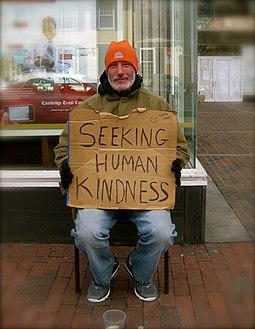
The podcaster interviewing me about my memoir, Getting Lost to Find Home sounded incensed. Why had I clung to my engagement plans for two years before admitting I was being jilted? “Couldn’t you see it coming?” the man asked. His question wasn’t friendly, but it didn’t stop him from stabbing me with it a second time. My answer that I’d been deeply in love, didn’t satisfy him. ”His grunt said I was stupid. If he hadn’t been the host and I a guest, I would have been more forthright. I’d have told him his question was meaningless. People raised in poverty, as I was, didn’t have much practice in foresight. What I remember about my youth was my mother’s constant worry that we’d have enough rice and beans in the cupboard for an evening meal. We lived from day to day like most poor people. Planning for the future was a middle-class idea. Today, talking about a divided America is common. People blame the rancor on political differences. That reason doesn’t scratch the surface. What divides America and much of the world is money—an impenetrable barrier between those who have it in abundance, those who imagine they can grab more for themselves, and those who have lost hope. About the superrich, Nick Carraway, the narrator In F. Scott Fitzgerald’s novel, The Great Gatsby, had this to say. Let me tell you about the very rich. They are different from you and me. One difference is the way they treat money. Given the state of the world, that relationship strikes me as indecent. Gweneth Paltrow charges her clients $4,000 a night to sleep in a hotel room filled with her goop products. (“Being Gwyneth,” by Isiah Magsino, Town&Country, Dec. 2023/Jan. 2024 pg. 70) Kim Kardashian drops $10,000 to a coveted stylist for twisting her hair into a ponytail. (Ibid. pg. 54.) How many impoverished children could eat for a year for the price of that ponytail? Nonetheless, that feminine vanity is penny-anty stuff. Consider the avarice of the sultan who is hosting the COP28 conference on climate change. He doesn’t believe the planet is in danger. What’s more, he’s using his platform to strike private oil deals with some of the countries in attendance. Too much money causes people to lose their compassion. Without it, no bridge exists between the classes. But is the Middle Class a repository of bleeding hearts? Not according to one study. The Middle Class has generated several myths to keep from falling prey to excessive empathy. Chief among them is that people lack money because they are lazy. Or, the economy is to blame. Sometimes, poverty is God’s will. One pejorative that didn’t make it into the study but which is common is that the poor have too many children. People from the upper and Middle classes do give to charity but for a variety of reasons. Compassion may be one of them but a Stanford study says people contribute with an eye to tax credits. Surprisingly, egoism and narcissism are also motivators. The poor contribute to good causes without the benefit of tax credits. Even so, they give a greater portion of their income to charities than the other classes. Perhaps the reason is they know the pain. If philanthropy could both assuage conscience and lift people out of poverty, that would be a bargain. However, two studies of NGOs showed mixed outcomes. One report concluded these organizations provided important vehicles for empowerment, democratization, and economic development.” The other admited that NGOs created unintended negative consequences in the villages they entered, especially when the organization was replicating existing government services. Because of their uneven performance, several poor countries have thrown the NGOs out. I, too, have mixed feelings about them. When I worked with charitable agencies in the 1980s, too often they resisted change, fearing an infringement of their turf. We might make some progress in working with the poor if we acknowledged they aren’t stupid. They are poor for reasons beyond their control. No matter how hard a strawberry picker works in the fields, the individual will remain below the poverty line. My mother was one of those. A low-wage earner, her greatest luxury was a 10-cent lipstick from the five-and-dime. If stipends had been available in her day, she would have welcomed them. But she wouldn’t have needed a middle-class social worker to tell her how to spend that income. The women of Umoja Uaso in Kenya are a good example of how the downtrodden can fend for themselves if barriers are removed. In 1990, fed up with genital mutilations, rapes, and beatings at the hands of the British army, some of the women who were treated as outcasts in their village formed a village of their own. No men were allowed. They sold arts and crafts and eventually, prospered. But the story doesn’t end there. The men of their former village grew jealous and established a craft colony nearby. They did their best to discourage tourists from visiting the women’s village, but the strategy failed. The weaker sex was too good at their work. Eventually, the women of Umoja bought the men out. December is the season of giving and I’m all for it. We could begin by eliminating the excuses people make to discriminate among the classes. If we want peace on earth, money must flow equitably through an economy. Let’s admit that $10,000 ponytails are obscene. If we share the wealth through fairer tax laws, for example, the country would experience greater harmony. I’m not alone in my thinking. Former Supreme Court Justice Louis Brandis said it best. We can either have democracy in this country or we can have great wealth concentrated in the hands of a few, but we can’t have both. ———————– Review from Midwest Book Review for Getting Lost to Find Home, December 2023 Critique: Fascinating, thought-provoking, entertaining, and ultimately inspiring, “Getting Lost to Find Home: A Memoir” by Caroline Miller will have […]
#COP28#F. Scott Fitzgerald#friction among social classes#Getting Lost to Find Home#Gweneth Paltrow#Isiah Maagsino#Justice Louis Brandis#Kim Kardashian#NGOs#The class struggle#The Great Gatsby#The women of UmojaUaso#Why people give to charity
0 notes
Text
13.11.23
“All morning it has been raining. In the language of garden, this is happiness." - Mary Oliver

02:56pm
the past doesn’t haunt us wouldn’t even recognize us if there are ghosts to be found it’s us who haunt the past 03:21pm

07:20pm
And so with the sunshine and the great bursts of leaves growing on the trees, just as things grow in fast movies, I had that familiar conviction that life was beginning over again with the summer. - F. Scott Fitzgerald, The Great Gatsby 07:31pm

07:46pm
Begin doing what you want to do now. We are not living in eternity. We have only this moment, sparkling like a star in our hand–and melting like a snowflake… - Francis Bacon 08:13pm
i believe that being a little bit annoying is actually a greater sign of maturity and self awareness than being universally likeable and on good terms with everyone. if some people find me annoying and can’t stand me because of how i think and act then that means i’m a fully realized human being with my own personality and opinions and free will and not just a reflective surface for other people’s desires. also it’s really funny when you’re confident enough in yourself to know that people not liking you isn’t always a sign that you’re the problem. like there’s something undeniably hilarious about being aware your mere existence has the power to piss someone off and ruin their day and i recommend embracing it. (elytrians.tumblr) 08:40pm

09:35pm
0 notes
Text
Abundance has been a popular trope in stories for centuries. Whether it be Katerina Tanenbaum’s luxurious lifestyle in F. Scott Fitzgerald’s classic The Great Gatsby or the over-the-top wealth held by the wealthy Bookmans in The Mysterious Benedict Society, we often read about characters whose lives appear to revolve around their financial security.
But including overindulgent, jarringly wealthy characters in literature isn’t always a great choice. In fact, it’s often woefully misinformed.
To better understand why, it’s necessary to take into account the reader’s perspective. Our culture has fostered a collective expectation that overindulgence and extreme wealth are the cornerstones of success and should be represented in any story that seeks to provide an accurate depiction of the upper class. However, many readers do not inhabit that same world of wealth and privilege, so they find difficulty connecting with stories that portray the lifestyles of the rich and famous.
At best, too much opulence can feel false and overblown — readers experience it with skepticism and insecurity. At worst, it can feel insulting — readers in the lower and middle classes feel that stories of this magnitude send them a message of erasure. It’s hard to empathize with characters who may have access to luxury beyond their wildest dreams if the story barely touches upon the ethical and social implications of such wealth.
Writers should be aware of how readers may receive their stories. While it’s understandable to want to depict the grandeur and glory of overflowing wealth, it’s important to be conscious of the implications of such display. We should strive to expose the ethical and social issues involved with such abundance to better show the whole picture.
Incorporating a fair and nuanced view of wealth into a story can be beneficial for the narrative. It allows the reader to access the characters in a much more meaningful way, providing potential for greater insight on economic and class disparities. It also invites readers to take a deeper look at the societal implications of overwhelming abundance.
By presenting a true-to-life depiction of abundance and its consequences, stories can become more culturally relevant. Readers are then able to connect more easily, to better understand the characters, and to make a meaningful moral decision for themselves. In short, it’s important to bear in mind that excess is not needed to minimalize dramatic effects and to instead focus on providing a clear and accurate representation of the struggles associated with wealth.
0 notes
Text
"No Is Free" Go Out and Get Rejected pt 2

If you can’t handle rejection. You can’t be an artist
This is the raw deal — people are going to say no to you. A lot. You are going to fail repeatedly. But, this happens to everyone. If the pill is tough to swallow, then get some water.
Push and pull...it’s the game of life. You have to take risks in order to dive deep and make the most of your experience here on Earth. In order to do this, you cannot let anyone stand in your way. And by anyone, I really mean anyone’s unsavory comments about the quality of your work, underhanded comments about it being too expensive, or even someone straight up just saying “no.” “No, I don’t like it.” “No, I’m not interested.”
The lack of engagement with your art in person and in online spaces can also be interpreted as rejection. Maybe you didn’t get as many likes or views as you had hoped so you start to feel bad about what you’re doing. Maybe a lot of people walk past your table at a fair and pretend you don’t exist.
I understand, you’re going into everything expecting something AMAZING to happen. You are expecting loads of encouragement or even adoration from friends, family, and complete strangers. Or maybe you’re just trying to make a living doing what you love. But the expectations you have could be killing your dream.
It’s true that you need the cooperation and support of others in order to accomplish much as an artist. However, it’s impossible to get to those people if you don’t make what you want known to as many RIGHT people as possible.
It’s the equivalent of dating a guy for 7 years and still not knowing if he’s interested in marrying you.
It’s the equivalent of F. Scott Fitzgerald’s titular character Gatsby spending his fortune on parties and shining that green light just hoping that Daisy makes the connection it’s all for her and throws herself into his arms. No!!!!!! Common sense dictates that we must speak directly to the right people about what we want. We have to make the ask.
You’re testing fate and hoping that things will just sort themselves out and fall into your lap. Hope is not a plan! Reality just doesn’t work in the favor of people who don’t make their goals a consistent pattern of behavior. And no, just talking about it doesn’t count.
If you’re talking night and day about your goals, set them into motion, and get some business cards. Find the right people. Are you putting your art in front of people with budgets? In front of people with an interest in what you create? Think about this. There are so many different factors that can contribute to rejection, many of which have nothing to do with the value or quality of your art. For example, maybe the person you are trying to pitch to simply doesn't have the budget to invest in your work at this time. Most likely, when you tell someone about your art, this is their first time learning of you and what you do. Therefore they may need some time to save in order to purchase your work, especially if you have a higher price range. In this case, it’s great to have payment plan options so you can make your art more accessible to a greater variety of patrons.
Or perhaps the gallery or cafe you’re pitching to is already overcommitted and unable to take on any more collaborations. Maybe they are looking for something that fits a very specific aesthetic or theme that your work just doesn't align with. Try to go in person and stake out locations for your next pitch. If it’s a gallery, read their mission statement to better understand their values. Try to find groups with the same values you have.
Some galleries are impenetrable and some are eager to debut emerging artists. Also, some are very focused thematically and only showcase particular aesthetics.
Furthermore, it's important to remember that art is highly subjective. Just because one person doesn't like your work doesn't mean that it's not valuable or meaningful to a great many of others. Most artists have been rejected repeatedly before finally finding success, simply because their work wasn't a good fit for a particular project, location, or client.
If this is still hard to accept, then think about a time you rejected someone. Perhaps you were short on time, funds, or simply just weren’t interested in what someone had to offer.
Of course, that's not to say that rejection doesn't sting. It can be incredibly disheartening to pour your heart and soul into a piece of art, only to have it rejected by the very people you were hoping to impress -- or literally anyone. But it's important to keep in mind that rejection is a natural part of the artistic process. Don’t allow these setbacks to dictate the course of your career. Instead, make a plan that accounts for them.
Rafi of Rafi Was Here featuring Klee, said that for every “yes” he expected 20 “no”s when pitching his art to local businesses. He didn’t cry when he said this he was actually very composed acknowledging this reality. I’m actually using this ratio of acceptance to rejection as a way to readjust my expectations. The creative side of me makes the art and the realistic part of me is the one that does all the logistical making money stuff.
Alright. Another source. In Ru Paul’s carpool interview show featuring John Waters, Ru asks what his advice is to people looking to get into showbiz (a peripheral industry to art), and John says “‘No’ is free…” “…Ask for what you want. You always get turned down in the beginning - and forever - but so what? No is free. It doesn’t cost to ask for what you want.” To this Ru Paul replies with a valuable critique about knee-jerk responses to rejection. “But everybody is so offended,” he says “everybody is so entitled…and they get their feelings hurt.” John chimes in with, “Well get over that quickly or you won’t last. Because show business IS rejection. I mean, I didn’t get a good review for 10 years!”
10 years of ridicule by the gatekeepers of his industry didn’t stop John, in fact he’s outlived many of his critics. Same with Ru Paul and potentially — you.
So, if you're an artist struggling with rejection, remember that it's a natural part of the process. Don't let it hold you back or make you doubt your worth as an artist. Keep creating and putting your work out there, and don't be afraid to seek out new opportunities and connections. Well, if you are, do it anyway. And most importantly, don't forget that rejection doesn't define you or your art. Stay true to yourself and your vision. Remember, the more you put yourself and your art out there, the more chances you have to succeed.
Now that you know rejection is to be expected in your art journey, how will you create your success?
My Art Shop
Follow Me on Instagram
0 notes